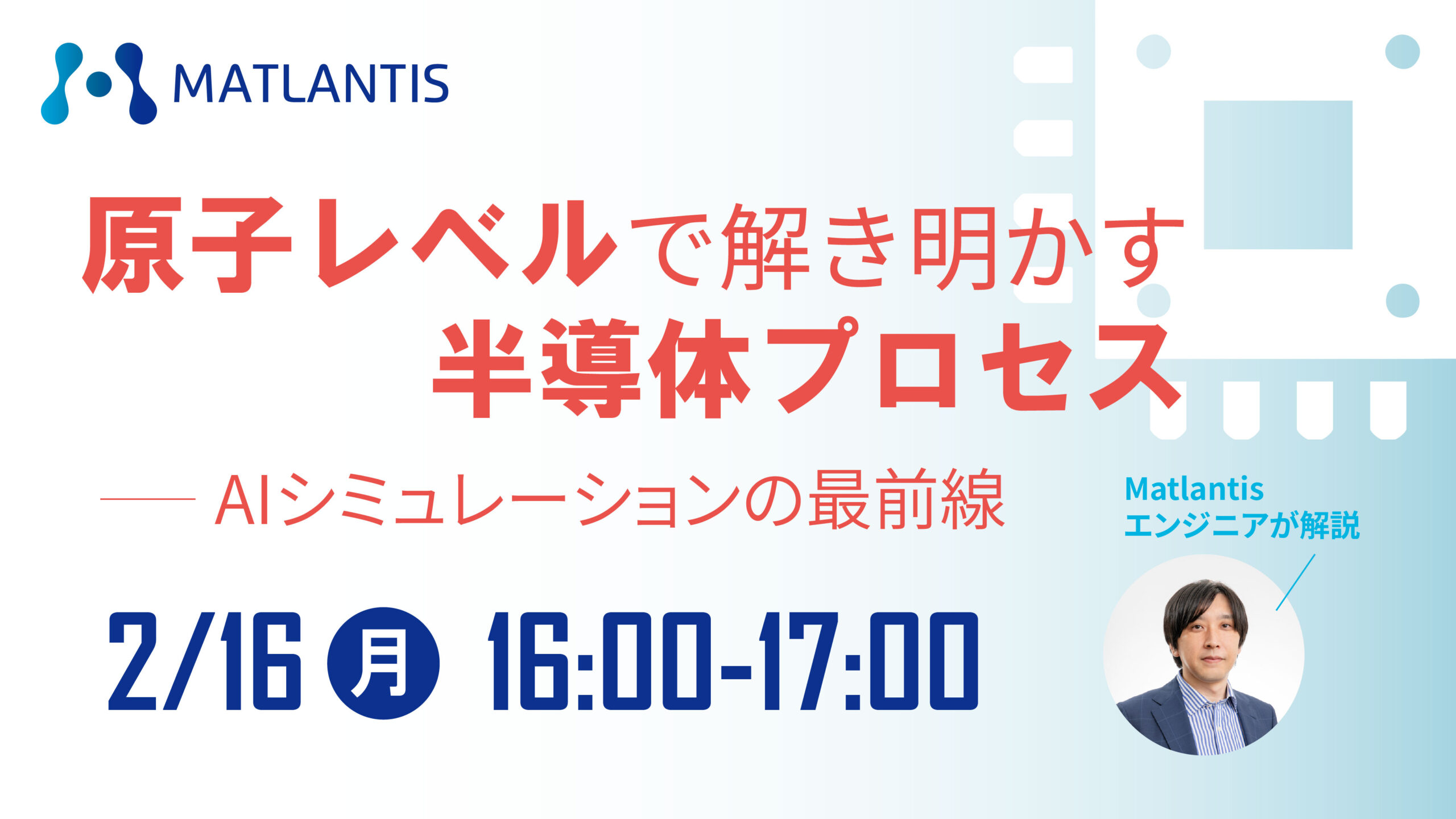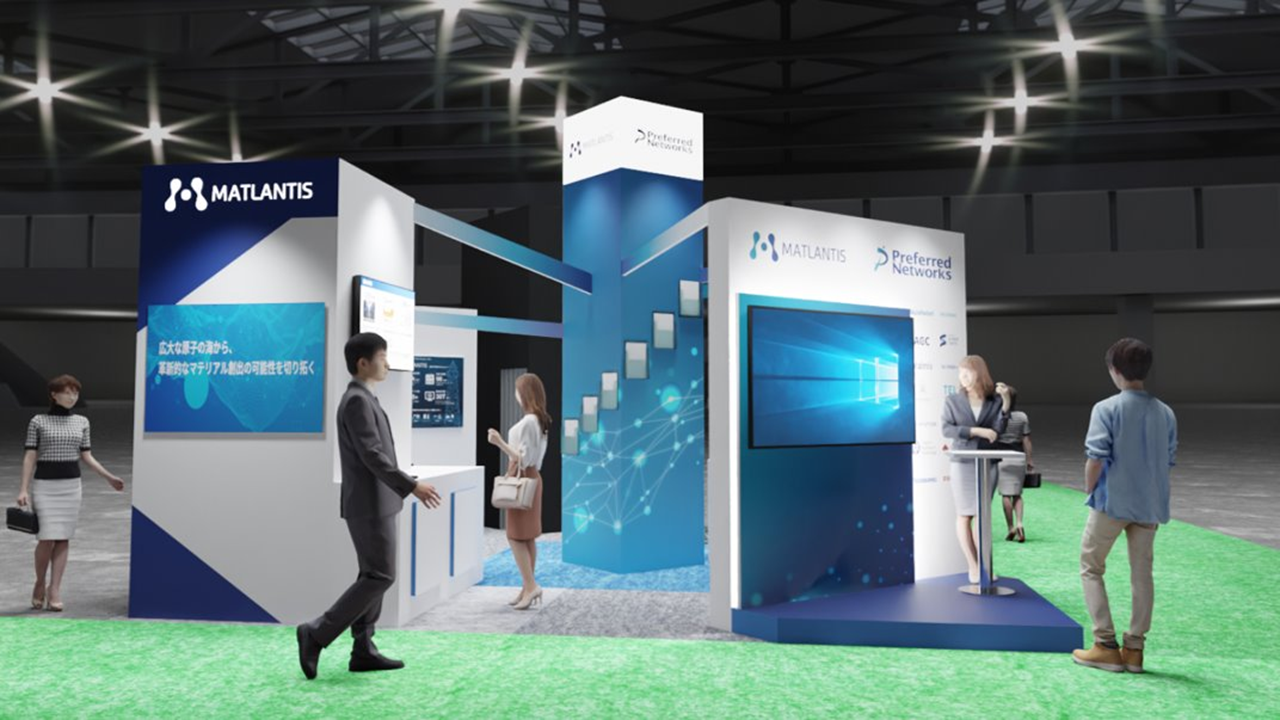過去のお知らせ
ウェビナー
オンライン2023.5.30 (JPN)
【無料ウェビナー】 Ju Li MIT教授: 機械学習による汎用原子間ポテンシャルの発明とその応用法について
日本: 2023年5月30日 (火) 8:00 – 9:30 (日本時間)
米国: 2023年5月29日 (月) 19:00 – 20:30 (東海岸時間) | 16:00 – 17:30 (西海岸時間)
Zoom ウェビナー (英語)
講師: Ju Li マサチューセッツ工科大学(MIT)教授
※登録にはプライバシーポリシーへの同意が必要です
Matlantis™ では、MITのJu Li 教授を招待し、ウェビナーを開催します。講演は英語となります。
- 講師:Ju Li, a professor at the Department of Nuclear Science and Engineering and Department of Materials Science and Engineering at Massachusetts Institute of Technology (MIT)
- タイトル:The Invention and Applications of Universal Machine Learning Interatomic Potential.
- 日時:2023年5月30日 (火) 8:00 – 9:30(Zoom ウェビナー)
登録 は無料です。計算科学の最前線にご関心のある皆さまのご参加をお待ちしております。
In this webinar, Professor Li will describe the recent invention of a robust universal machine learning interatomic potential that covers much of the periodic table. More than one thousand GPU years were used to generate the ab initio training data guided by active learning. Diverse test simulations have shown this machine learning potential has outstanding performance, with energy error significantly less than the chemical accuracy (43 meV/atom) for even chemically very complex systems. This universal potential, which powers the Matlantis™ atomistic simulator, can run over 10,000 times faster than density functional theory (DFT) when dealing with several thousand atoms, and the latest release allows for more than 10,000 atoms of arbitrary combinations of 72 elements to be simulated together. Going from a few hundred atoms in DFT to up to 55,000 atoms in Matlantis™, one can study realistic microstructures such as extended defects with curvatures and their interactions, realistic phase transformations, plastic deformation and damage evolution, electrochemical interfaces, etc.
Who should attend:
- Computational scientists who are facing limitations of their current calculation/simulation approach
- Researchers who are interested in discovering game-changing new materials using computer simulation
- Anyone who is interested in knowing about what’s happening at the forefront of materials informatics
※登録にはプライバシーポリシーへの同意が必要です
Ju Li 教授 略歴
Ju Li has held faculty positions at the Ohio State University, the University of Pennsylvania, and is presently a chaired professor at Massachusetts Institute of Technology. His group investigates the mechanical, electrochemical and transport behaviors of materials as well as novel means of energy storage and conversion. Ju is a recipient of the 2005 Presidential Early Career Award for Scientists and Engineers, the 2006 Materials Research Society Outstanding Young Investigator Award, and the TR35 award from Technological Review. Ju was elected Fellow of the American Physical Society in 2014 and a Fellow of the Materials Research Society in 2017. In 2016 Ju Li co-founded one of the MIT Energy Initiative (MITEI) Low-Carbon Energy Centers, the Center for Materials in Energy and Extreme Environments (CME).
公開日:2023.04.18




